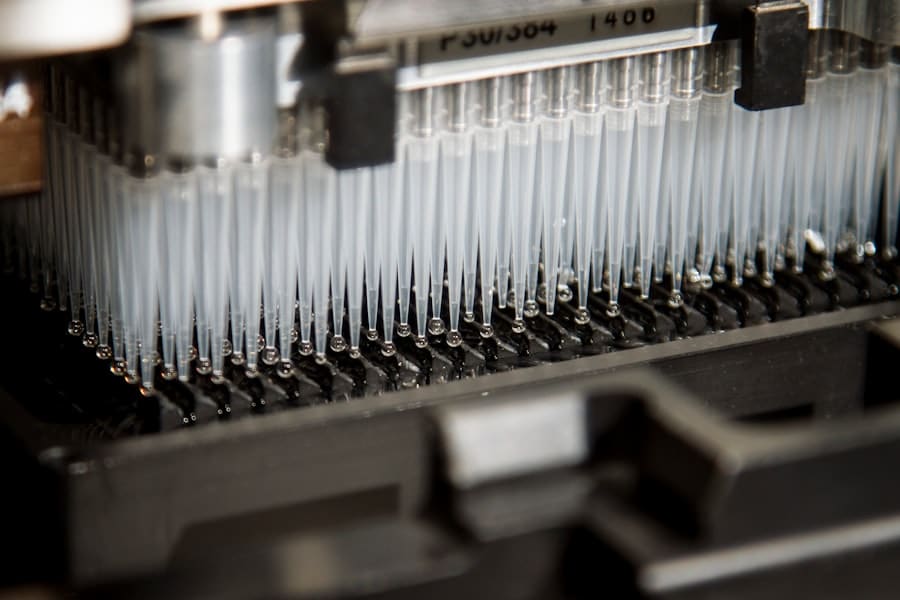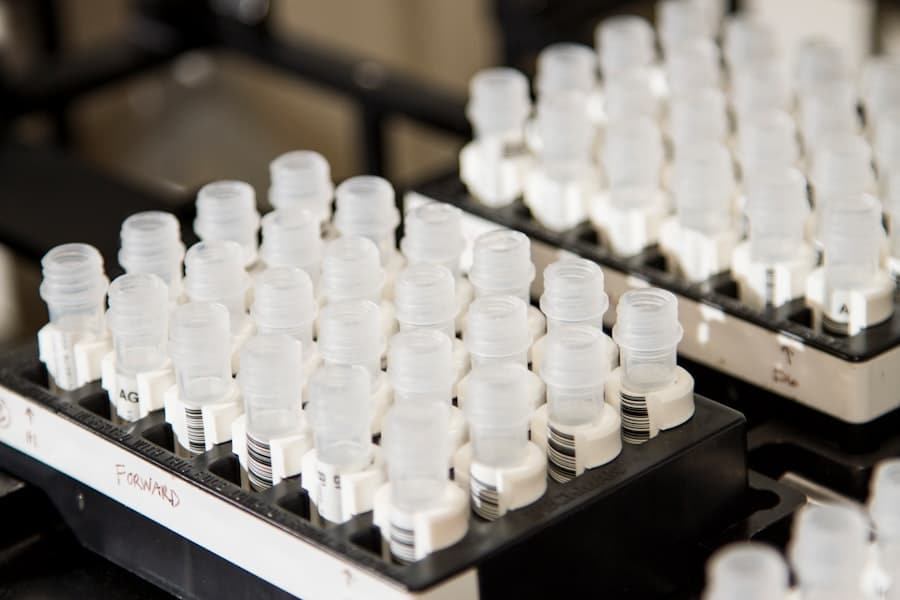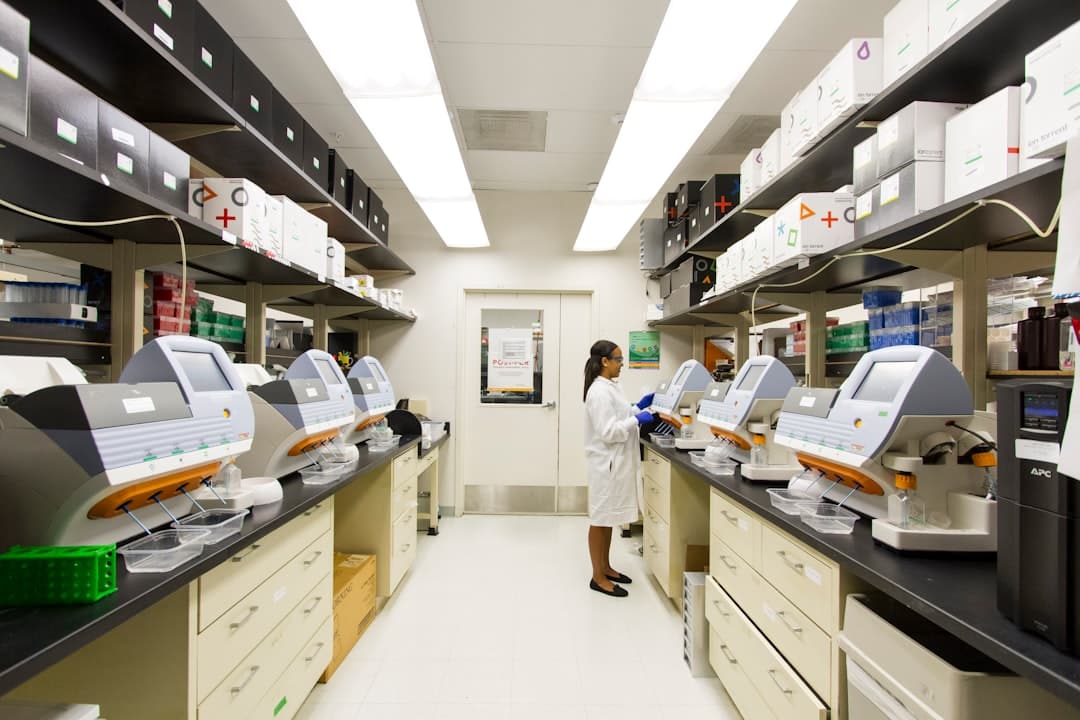Artificial Intelligence (AI) has emerged as a transformative force across various sectors, and healthcare is no exception.
Genetic diseases, often caused by mutations in an individual’s DNA, can manifest in a myriad of ways, affecting everything from physical health to cognitive function.
The complexity of these diseases, coupled with the vast amount of genetic data generated through advancements in genomics, presents both challenges and opportunities for healthcare professionals.
The intersection of AI and genetics is not merely a technological advancement; it represents a paradigm shift in how we approach medical diagnostics.
Traditional methods of diagnosing genetic diseases often rely on extensive clinical evaluations and family histories, which can be time-consuming and sometimes inconclusive. In contrast, AI can analyze large datasets at unprecedented speeds, uncovering correlations that may elude human experts. This capability is particularly crucial in the context of rare genetic diseases, which often go undiagnosed for years due to their infrequent occurrence and the limited knowledge surrounding them.
By harnessing the power of AI, researchers and clinicians are beginning to unlock new avenues for early detection and intervention.
Key Takeaways
- AI plays a crucial role in identifying patterns in genetic data, which can lead to the diagnosis of rare genetic diseases.
- AI has various applications in rare genetic disease diagnosis, including identifying disease-causing mutations and predicting disease progression.
- Challenges and limitations of AI in genetic disease identification include the need for large and diverse datasets, as well as the potential for biases in the algorithms.
- Case studies have shown AI successfully identifying rare genetic diseases, leading to improved patient outcomes and personalized treatment plans.
- Ethical considerations in using AI for genetic disease diagnosis include patient privacy, consent, and the potential for psychological impact on patients and their families.
The Role of AI in Identifying Patterns in Genetic Data
At the heart of AI’s application in genetics lies its ability to identify patterns within complex datasets. Genetic information is inherently multifaceted, comprising sequences of nucleotides that can vary significantly between individuals. Machine learning algorithms excel at recognizing these intricate patterns, enabling them to predict disease susceptibility based on genetic markers.
For instance, deep learning models can be trained on vast genomic datasets to discern subtle variations that may indicate a predisposition to certain conditions. This capability is particularly valuable in the context of polygenic diseases, where multiple genes contribute to the overall risk. Moreover, AI can integrate diverse types of data beyond just genetic sequences.
By combining genomic information with clinical data, environmental factors, and even lifestyle choices, AI systems can create comprehensive profiles that enhance predictive accuracy. For example, researchers have developed models that incorporate not only genetic variants but also patient demographics and clinical histories to improve the identification of individuals at risk for hereditary conditions. This holistic approach allows for a more nuanced understanding of how genetic factors interact with other variables, ultimately leading to more personalized healthcare strategies.
Applications of AI in Rare Genetic Disease Diagnosis

The application of AI in diagnosing rare genetic diseases is particularly promising due to the unique challenges these conditions present. Rare diseases often lack sufficient clinical data for traditional diagnostic methods to be effective. However, AI can bridge this gap by leveraging existing datasets from various sources, including genomic databases and patient registries.
For instance, AI algorithms can analyze genetic sequences from patients with similar symptoms or family histories, identifying shared mutations that may point to a specific rare disease. One notable application is the use of AI in whole-exome sequencing (WES), a technique that focuses on the protein-coding regions of the genome where most known disease-causing mutations reside. By employing machine learning algorithms to analyze WES data, researchers have successfully identified previously unrecognized genetic variants associated with rare conditions.
In one study, an AI model was able to predict pathogenic variants in patients with undiagnosed genetic disorders with remarkable accuracy, significantly reducing the time required for diagnosis. Additionally, AI-driven platforms are being developed to assist clinicians in interpreting complex genetic data. These platforms can provide real-time insights into potential diagnoses based on the genetic information available, streamlining the decision-making process for healthcare providers.
By automating parts of the diagnostic workflow, AI not only enhances efficiency but also empowers clinicians to make more informed decisions regarding patient care.
Challenges and Limitations of AI in Genetic Disease Identification
Despite its potential, the integration of AI into genetic disease identification is not without challenges. One significant limitation is the quality and representativeness of the data used to train AI models. Many existing genomic datasets are biased towards certain populations, which can lead to disparities in diagnostic accuracy across different demographic groups.
For instance, if an AI model is primarily trained on data from individuals of European descent, it may perform poorly when applied to populations with different genetic backgrounds. This issue underscores the importance of diversifying datasets to ensure that AI tools are equitable and effective for all patients. Another challenge lies in the interpretability of AI algorithms.
While machine learning models can achieve high levels of accuracy in predicting genetic diseases, understanding how they arrive at their conclusions can be difficult. This lack of transparency poses a significant hurdle for clinicians who must communicate findings to patients and make informed treatment decisions based on those results. Efforts are underway to develop explainable AI models that provide insights into their decision-making processes, but achieving a balance between accuracy and interpretability remains an ongoing challenge.
Case Studies of AI Successfully Identifying Rare Genetic Diseases
Several case studies illustrate the successful application of AI in identifying rare genetic diseases, showcasing its transformative potential in clinical settings. One prominent example involves the use of deep learning algorithms to analyze genomic data from patients with suspected Mendelian disorders. Researchers at Stanford University developed a model that could predict pathogenic variants with an accuracy exceeding 90%.
This model was tested on a cohort of patients with undiagnosed conditions, leading to a definitive diagnosis for several individuals who had previously been without answers for years. Another compelling case study comes from a collaboration between Google Health and various academic institutions aimed at diagnosing rare genetic disorders through facial recognition technology. By training convolutional neural networks on images of patients’ faces alongside their genomic data, researchers were able to identify phenotypic features associated with specific genetic conditions.
This innovative approach not only facilitated faster diagnoses but also highlighted the potential for integrating visual data into genetic analysis. These case studies exemplify how AI can enhance diagnostic capabilities for rare genetic diseases, providing hope for patients and families who have long struggled with uncertainty regarding their conditions.
Ethical Considerations in Using AI for Genetic Disease Diagnosis

Patient Privacy and Data Security
The deployment of AI in genetic disease diagnosis raises several ethical considerations, primarily revolving around patient privacy and data security. Genetic information is inherently sensitive, and unauthorized access or misuse could have profound implications for individuals and their families.
Informed Consent and Discrimination
In addition to privacy concerns, there are ethical implications related to informed consent and the potential for discrimination based on genetic information. Patients must be adequately informed about how their genetic data will be used and the potential risks involved in sharing such information with AI systems. Furthermore, there is a risk that individuals with certain genetic predispositions may face discrimination in areas such as employment or insurance coverage if such information becomes accessible to third parties.
Addressing Ethical Challenges
Addressing these ethical challenges requires collaboration among stakeholders, including healthcare providers, policymakers, and ethicists. Establishing clear guidelines for the responsible use of AI in genetics will be essential to fostering public trust and ensuring that technological advancements benefit all members of society equitably.
Future Possibilities and Developments in AI for Rare Genetic Diseases
Looking ahead, the future possibilities for AI in the realm of rare genetic diseases are vast and exciting. As technology continues to evolve, we can anticipate significant advancements in both the accuracy and efficiency of diagnostic tools powered by AI. One promising avenue involves the integration of multi-omics data—combining genomics with transcriptomics, proteomics, and metabolomics—to create a more comprehensive understanding of disease mechanisms.
By leveraging these diverse datasets, AI could uncover novel biomarkers and therapeutic targets for rare conditions. Moreover, advancements in natural language processing (NLP) could enhance the ability of AI systems to analyze unstructured clinical notes and research literature. This capability would enable more effective mining of existing knowledge bases for relevant information related to rare diseases, facilitating faster identification of potential diagnoses based on emerging research findings.
The development of personalized medicine approaches will also benefit from AI’s capabilities. As our understanding of genetic diseases deepens through ongoing research and data collection, AI can help tailor treatment plans based on an individual’s unique genetic profile. This shift towards precision medicine holds great promise for improving patient outcomes and minimizing adverse effects associated with generalized treatment protocols.
The Impact of AI on Rare Genetic Disease Diagnosis
The impact of artificial intelligence on the diagnosis of rare genetic diseases is profound and multifaceted. By harnessing advanced algorithms capable of analyzing complex datasets at unprecedented speeds, healthcare professionals are better equipped to identify patterns that may indicate specific conditions. The successful application of AI in various case studies demonstrates its potential to transform diagnostic processes and provide hope for patients who have long faced uncertainty regarding their health.
However, as we embrace these technological advancements, it is crucial to remain vigilant about the ethical considerations they entail. Ensuring patient privacy, promoting equitable access to diagnostic tools, and fostering public trust will be essential as we navigate this evolving landscape. The future holds immense promise for further developments in AI applications within genetics; as we continue to explore these possibilities, we stand on the brink of a new era in healthcare that could redefine our approach to rare genetic diseases forever.
A related article discussing the best niche for affiliate marketing on Instagram can be found at this link. This article explores how individuals can leverage Instagram to promote products and services within specific niches, potentially reaching a wider audience and increasing their affiliate marketing success. Just as AI is being used to identify patterns in rare genetic diseases, understanding the best niche for affiliate marketing can help individuals target their efforts more effectively and achieve better results.
FAQs
What is AI?
AI, or artificial intelligence, refers to the simulation of human intelligence in machines that are programmed to think and learn like humans. It involves the use of algorithms and data to enable machines to perform tasks that typically require human intelligence.
What are rare genetic diseases?
Rare genetic diseases are disorders that are caused by changes in an individual’s DNA. These diseases are considered rare when they affect a small percentage of the population. There are thousands of different rare genetic diseases, and they can vary widely in their symptoms and severity.
How is AI being used to identify patterns in rare genetic diseases?
AI is being used to analyze large amounts of genetic and clinical data to identify patterns and potential correlations that may be indicative of rare genetic diseases. By using machine learning algorithms, AI can help researchers and healthcare professionals to better understand these diseases, improve diagnosis and treatment, and ultimately improve patient outcomes.
What are the benefits of using AI in identifying patterns in rare genetic diseases?
Using AI to identify patterns in rare genetic diseases can lead to earlier and more accurate diagnoses, personalized treatment plans, and a better understanding of the underlying causes of these diseases. This can ultimately lead to improved patient care and outcomes.
Are there any limitations to using AI in identifying patterns in rare genetic diseases?
While AI has the potential to greatly improve our understanding of rare genetic diseases, there are limitations to consider. These may include the need for high-quality data, potential biases in the algorithms, and the need for validation of findings through traditional research methods. Additionally, AI should be used as a tool to support healthcare professionals rather than replace their expertise.

